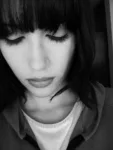Dealing with Death & Grief During Addiction Recovery

Entering recovery is a huge step on the path to creating a better life for yourself; however, just like any big change, it can present challenges. One such challenge includes suffering the loss of a family member or friend at the same time as recovering from addiction.
Grieving the loss of a loved one can cause the steps you take during recovery to falter, or even regress. Many addictive behaviors are rooted in a desire to escape reality, and reality as brutal as death can trigger a relapse. However, there are important steps you can take, including diving even deeper into your recovery community, to help you cope — in a healthy way — with this loss.
Allow yourself to feel the emotions
The pain of loss you’re dealing with is nothing to brush aside. It’s real, it hurts and the wound is deep. Take time to feel sad. Covering up the pain you’re feeling will only suppress it and make things worse and more difficult to handle in the long run.
When you feel intense emotions of grief and sadness, take the time to allow yourself to grieve or cry. While nobody wants to ever feel this kind of loss, channeling your emotions without suppression is a healthy part of the grieving process.
Reach out to your people
Everyone deals with loss in their own way. Some individuals might seclude themselves, while others lose their appetite. Depending on how you grieve this process could be more or less severe or take additional time. No matter how you deal with loss, keep in mind the value of community.
The burden you feel from the loss can be lifted if you talk about it to those you are close to. They might not be able to remove negative emotions, but they can definitely be a listening ear as you process them. In these instances look for a caring friend, family member or therapist to whom you can talk and open up to. You might find that simply vocalizing your emotions, thoughts and experience helps a lot.
Keep a routine
Humans are routine-oriented beings. However, dealing with a loss can easily disrupt our usual pattern of behavior and add to the already intense feelings of upset and chaos.
While it’s hard to pick up your routine right after suffering a loss, try sticking to what you can. If you usually wake up at a certain time or eat specific foods, do your best to keep those things the same. Or, if you can’t keep all facets of your routine, try maintaining just one thing for a few days before adding in an additional task. Before you know it within a couple of days or weeks, you can get back to your normal routine.
Seek professional help
In some cases, extra help might be needed. Grief usually follows a pattern, but there isn’t a grief timeline of when you should start feeling better. If you are experiencing any of these symptoms, please contact a mental health professional:
- Intense longing and yearning for your deceased loved one
- Intrusive thoughts or images of your loved one
- Denial of the death or sense of disbelief
- Imagining that your loved one is alive
- Searching for your deceased loved one in familiar places
- Avoiding things that remind you of your loved one
- Extreme anger or bitterness over your loss
- Feeling that life is empty or meaningless
These symptoms can be underlying indicators of complicated grief. This is a type of grief outside of the scope of the grieving process. Some of these symptoms can also lead to clinical depression. Seeking help from a medical professional can help with these symptoms.
Grief and addiction recovery
Going through the loss of a family member or friend is increasingly challenging and emotional. It is important to remember that everyone grieves differently, but allowing yourself time and space to feel sadness, reaching out for help and keeping up with a routine are all things to help you through this process.
And if you feel as if going through addiction recovery in addition to handling grief adds additional stress to your grieving process, remember that the people in your program are there to offer help and support. Tap into the community and allow them to be there for you during this time.
For additional help and support, reach out to High Focus Centers PA by calling us anytime at 610-644-6464 or contacting us via our website.








